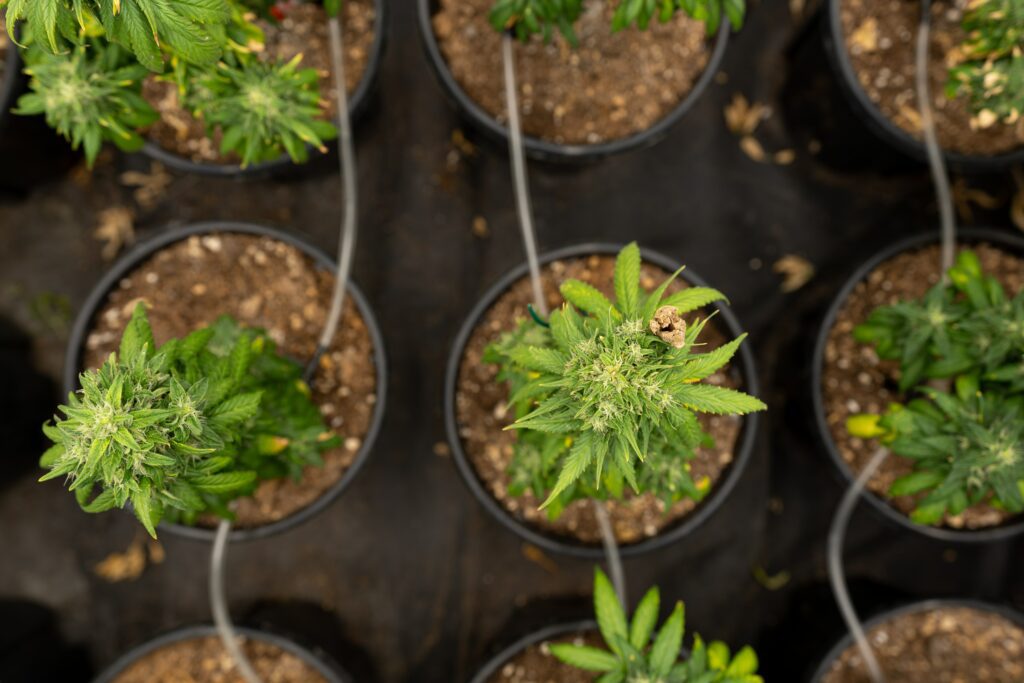The internet is helping to democratize medicine and it’s never been easier to take healthcare into your own hands. There’s also been a resurgence of traditional plant-based medicines that don’t require insurance, an MD, or a prescription.
Cannabidiol, or CBD, is one of the most popular supplements to emerge from the past decade and it has many proven benefits. But because it comes from cannabis, and because cannabis is still federally illegal, there are massive limitations on how you can market CBD online—creating a void in the marketplace that ultimately hurts consumers and small businesses.
CBD, one of over a hundred cannabinoids on the cannabis plant, doesn’t get you high but it’s guilty by association. For more than a century, cannabis has been used as a scapegoat for crime, racist policies and the War on Drugs. Today, it’s still classified as a Schedule I drug—right next to heroin—with no medical value. But over the last three decades, cannabis has emerged as one of the most effective plant-based medicines. A search for ‘how is CBD beneficial’ returns hundreds of studies discussing its myriad benefits. Research proves it’s a powerful antioxidant that can ease pain, support sleep, reduce anxiety and depression, and promote neurogenesis and overall wellbeing. In some cases, it can even replace or reduce dependence on pharmaceuticals. That’s probably why 37 states, three territories and the District of Columbia have passed medical-use cannabis laws. CBD and cannabis are big business.
With all its benefits, there are likely hundreds of thousands of CBD products available on the market right now. But you wouldn’t know by looking. Because cannabis remains a Schedule 1 drug, it—and its derivatives, like CBD—can’t be advertised or sold on popular marketplace platforms like Amazon or Google. Given that 80% of product searches originate from one of these sites, that drastically shrinks the marketplace for consumers to find a CBD product. To get around these restrictions, companies will find loopholes, lie about their products or tap into huge marketing budgets, all of which limit what’s actually “on the market.” This confuses vulnerable consumers who rely on these marketplaces for medicine; disadvantages small, ethical business owners who choose to play by the rules; and restricts product offerings to companies with bigger marketing budgets
.
Relabeling CBD as ‘hemp oil’ is a popular example of a loophole since hemp is technically legal, so long as it doesn’t contain more than 0.3 percent THC (the stuff that actually gets you high). Companies will often mislabel their CBD products to skirt the rules, and even create separate websites—with intentional misinformation—about the same product so they can advertise on search engines like Google. This cheats consumers from the benefits of CBD: Every time someone tells me that CBD didn’t work for them, it’s usually because the product didn’t have the right extract at a proper dosage.
It boils down to a void in the marketplace. Consumers seeking trustworthy information about CBD products are left with an incomplete picture of the solutions available to them. Ethical (and, more often than not, small) businesses are unable to reach new customers. That leaves tons of lower quality, higher quality—and everything-in-the-middle quality—products off the market.
Only when CBD can be marketed like any other product will consumers be able to truly benefit from all it has to offer—and more importantly—make complete, informed decisions. And only then will CBD businesses get a fair shake at promoting their products. It will take rescheduling cannabis to get us there.
Reports show an overwhelming majority of Americans want to see cannabis rescheduled. A bipartisan group of lawmakers recently told Biden: “The decision to schedule marijuana was rooted in stigma rather than an evidence-based process, and it is time to fully remedy this wrong.” Perhaps Big Pharma is slowing this inevitable course correction because cannabis is already cutting into their profits. Whatever the reason, the system is broken and the federal government needs to take the long-overdue step of removing cannabis from the DEA’s drug schedule so CBD producers can advertise and operate like normal businesses. Consumers should be able to find and purchase CBD products as easily as a daily multivitamin.
For a plant with so many benefits and so few side effects, it’s high time we remove the stigma around cannabis. By reclassifying cannabis correctly, CBD can be marketed like any other product creating a true, free open marketplace that benefits businesses and consumers alike. Our bodies have an innate cannabinoid system that seems to have evolved in parallel with this plant over thousands of years. Let’s hope the federal government can evolve alongside it, too.
